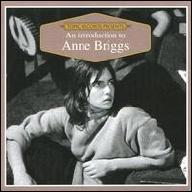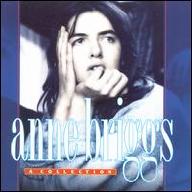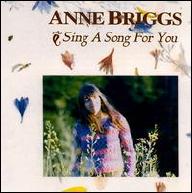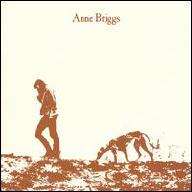Briggs was born in Nottinghamshire in 1944 and began singing folk music while still in her teens. Within a couple of years she was a regular at local folk clubs, getting her big break as a result of the Centre 42 tour of 1962. The Centre 42 tour was an attempt by musicians and other artists (backed and supported by trade unions) to deliver politically leftist cultural activities to areas outside of London. Part of Centre 42's appeal was that in each city, local talent would audition for a slot as a support act. It was here that Briggs got her shot and was discovered by British folk legend Ewan MacColl. She was so good that MacColl convinced her to leave school and join the rest of the tour. While touring with Centre 42, Briggs began working with MacColl's friend and co-architect of the British folk music revival, Bert Lloyd. Briggs considers him the most important influence on her work, and her debut EP, The Hazards of Love, had Lloyd's fingerprints all over it. But he was not a mere Svengali trying to take advantage of a teenage folksinger; he wanted to give her the direction (as well as the songs) she needed to become a huge talent. Lloyd was smart enough to realize that this was an extraordinary, once-in-a-lifetime type of singer, and he treated her with kid gloves, getting her to relax (Briggs was notorious for her nervousness) and helping her record some wonderful music. But Briggs had a problem with recording her singing -- she hated doing it and hated the way she sounded, so much so that she retired from music, three years shy of 30, already touted as the greatest legend in English folk music. Briggs still lives semi-reclusively in England and is still not recording or singing in public, but her influence remains powerful. As guitarist Martin Carthy so aptly put it: "She didn't mess about. There were no histrionics. There was no posing. There was no self-conscious style. She sang fluidly, easily, with tremendous passion." ~ John Dougan, Rovi
Anne Briggs
from Toton, Nottinghamshire, England
September 29, 1944 (age 81)
Biography
In the annals of pop and folk music, there are few sagas stranger than that of Anne Briggs. An awesomely talented singer of traditional English folk music, possessing of as pure and breathtakingly beautiful a voice as one could hope to have, she was the single most important influence on a group of female British folksingers that includes Sandy Denny, Maddy Prior, June Tabor, and Linda Thompson. Even Norma Waterson, herself a hugely important figure in the British folk revival of the mid-'60s, admits to being influenced by Briggs' singing, and notes that Anne Briggs singlehandedly changed the way that English women folksingers sang. What makes this story so odd is that Briggs' entire recorded output consists of about 30 songs. She stopped singing at the age of 27, supposedly because she hated the sound of her recorded voice. As folk music became electrified and increasingly popular, and bands such as Fairport Convention and Pentangle were reinventing the British folk tradition, and more and more women (Sandy Denny, et al.) were singing in a style started by Briggs, her legend flourished, yet she refused to sing.
Top Tracks
Albums
Videos
Close
















